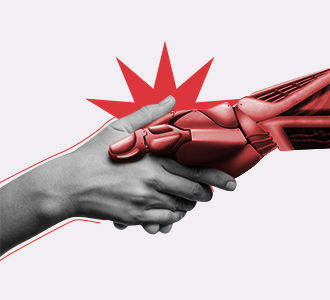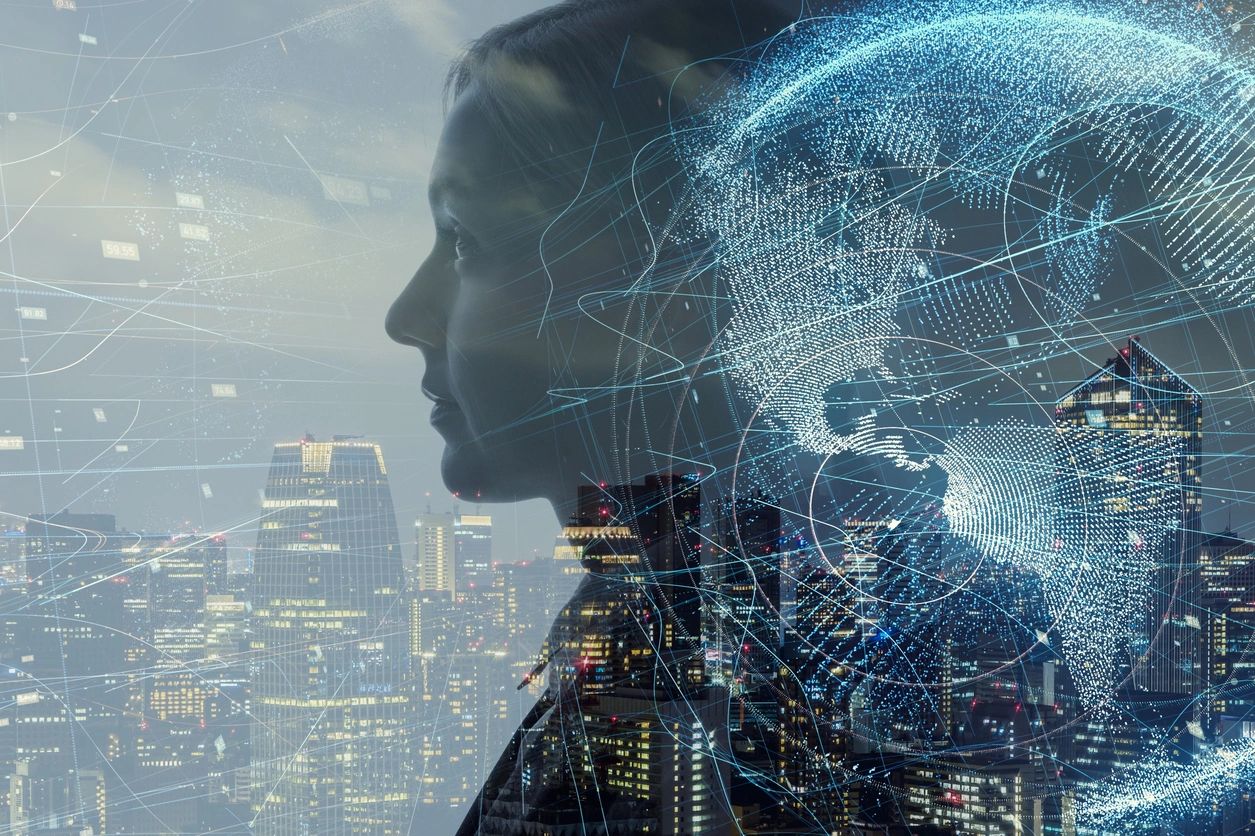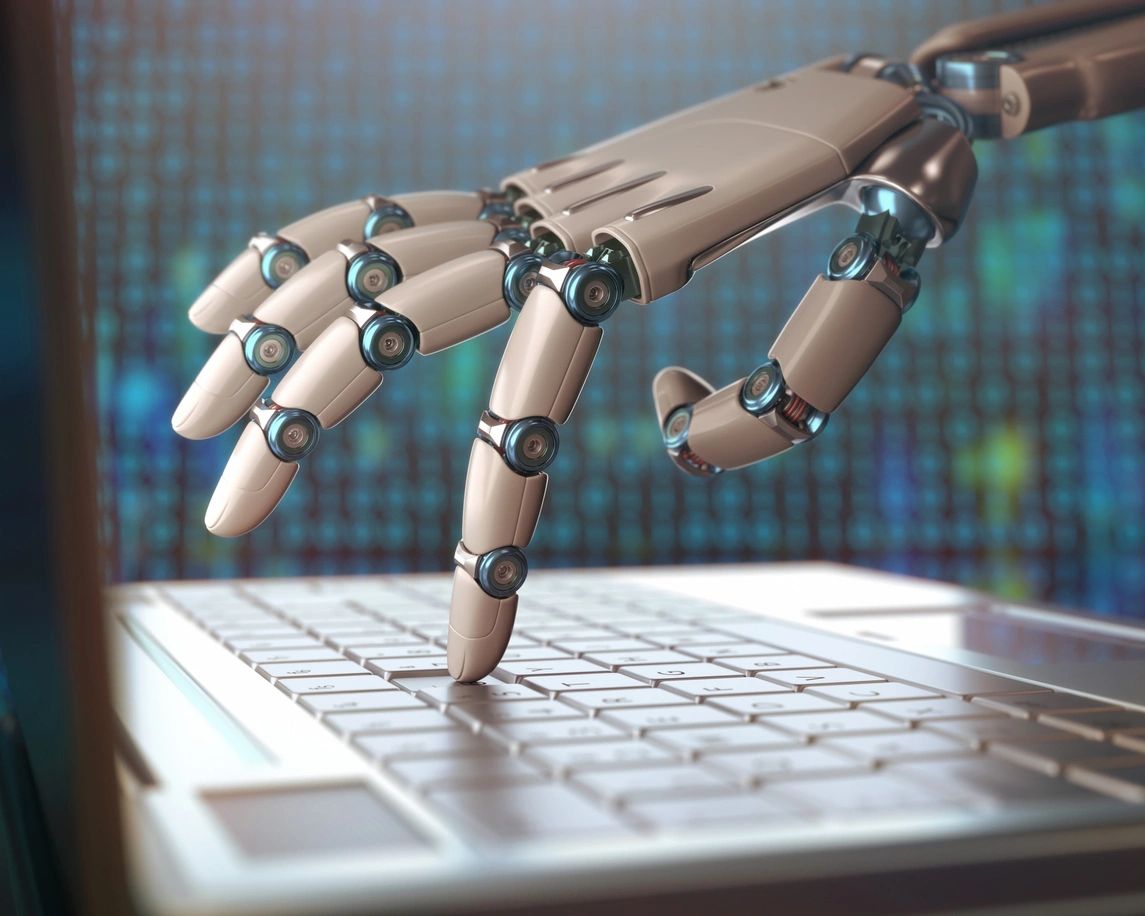
Welcome to the forefront of innovation in the realm of IT staffing, where the convergence of technology and human resources is ushering in a new era. In this dynamic landscape, the influence of Artificial Intelligence (AI) is unmistakably transformative, revolutionizing the traditional paradigms of recruiting and staff management. As we delve into the intricacies of this paradigm shift, it becomes evident that AI is not merely a tool but a catalyst that is shaping the future of IT staffing in unprecedented ways. Join us on a journey through the corridors of change as we explore the profound impact of AI on the recruitment process, workforce dynamics, and the overall landscape of information technology staffing.
In this blog, we will outline:

Artificial Intelligence (AI) refers to the growth of computer systems that can carry out tasks that typically require human intelligence. These systems are designed to copy human conceptual functions, such as learning, problem-solving, and decision-making. At its core, AI involves the creation of algorithms and models that enable machines to process information, adapt to changing circumstances, and improve their performance over time. It encompasses a wide range of applications, from speech recognition and image analysis to natural language processing and autonomous vehicles. As AI continues to advance, its impact on various industries is profound, transforming the way we live, work, and interact with technology.
The integration of Artificial Intelligence (AI) into staffing solutions has revolutionized the traditional recruitment process, offered numerous benefits and enhancing efficiency across various aspects of talent acquisition. It helps to enhance efficiency, reduce bias, and improve the overall recruitment and talent management process, ultimately contributing to more strategic and data-driven decision-making in workforce management.

The statistical tapestry of AI’s influence on IT recruitment is woven with data that highlights the transformative impact of artificial intelligence on various aspects of the recruitment and workforce management landscape. Here’s a snapshot of key statistics illustrating AI’s influence:
Statistical Insight | Statistic | Implication |
Time Savings in Recruitment | LinkedIn: AI can reduce hiring time by 50%. | AI streamlines recruitment tasks, accelerating the hiring process. |
Improved Candidate Matching | SHRM: 65% of recruiters believe AI enhances decisions. | AI algorithms enhance accuracy in matching candidates to job requirements. |
Enhanced Candidate Experience | IBM: 64% of candidates see AI improving recruiting. | AI-driven communication, chatbots improve engagement and experience for candidates. |
Diversity and Bias Mitigation | Harvard Business Review: AI can reduce bias by 70%. | AI helps eliminate unconscious biases, fostering diversity in hiring. |
Predictive Analytics for Hiring Success | Deloitte: 38% of organizations use predictive analytics. | AI-driven analytics forecast hiring success by analyzing historical data. |
Skills Gap Analysis | PwC: 74% of CEOs worry about key skills availability. | AI identifies skills gaps, aiding in targeted training for employee development. |
Employee Retention Strategies | Gartner: 87% of HR leaders prioritize AI for retention. | AI predicts retention risks, enabling proactive strategies for talent retention. |
Cost Savings in Recruitment | Allegis Group: 58% reported cost savings with AI. | AI-driven automation reduces manual efforts, leading to cost efficiency. |
Remote Work Adaptability | Flex Jobs: 65% of remote workers are more productive. | AI supports virtual recruitment processes, facilitating remote work practices. |
Global Adoption of AI in HR | Gartner: By 2022, 72% of organizations deploy AI in HR. | Widespread adoption signifies the integral role of AI in shaping staffing and talent management. |
These statistics collectively paint a picture of how AI is reshaping staffing practices, contributing to more efficient, data-driven, and inclusive workforce management strategies. The influence of AI on staffing is not only evident in time and cost savings but also in its potential to enhance the overall quality of recruitment processes and employee experiences.
The integration of artificial intelligence (AI) is reshaping the future of IT staffing and talent acquisition. As businesses embrace technological advancements, a host of questions arises regarding the role of AI in revolutionizing the traditional recruitment process. From automating mundane tasks to enhancing candidate experiences and predicting future performance, AI is undeniably changing the way organizations identify, assess, and onboard talent. However, concerns about bias, ethical considerations, and the need for a harmonious blend of human judgment and AI capabilities persist. This introductory exploration delves into some frequently asked questions surrounding the transformative impact of AI on talent acquisition, shedding light on the challenges, opportunities, and evolving dynamics in the realm of workforce management.
Here are some frequently asked questions about the future of staffing and how AI is revolutionizing talent acquisition:
1. How is AI changing the landscape of talent acquisition?
2. What role does AI play in sourcing and screening candidates?
3. Can AI predict a candidate’s future performance?
In conclusion, the integration of artificial intelligence into IT staffing companies marks a pivotal moment in the industry’s evolution. AI’s ability to revolutionize candidate sourcing, screening, and predictive analytics has not only streamlined recruitment processes but also elevated the precision and agility of staffing agencies in meeting the demands of a rapidly changing IT landscape. As the technology continues to mature, it is evident that AI is not a replacement for human recruiters but a powerful ally, enabling them to focus on strategic decision-making, relationship building, and nuanced assessments that require the unique qualities of human intuition and understanding.
The future of IT recruitment lies at the intersection of technological innovation and human expertise. By embracing the transformative potential of artificial intelligence, staffing agencies can navigate the complexities of the modern job market with greater efficiency and foresight. As the industry adapts to this paradigm shift, the collaboration between AI and human professionals is poised to define a new era of recruitment, one where the synergy between technological capabilities and human insights creates a more dynamic, responsive, and effective staffing ecosys
Select your preferred mode of engagement and let’s move forward together.
If you have any questions, speak with our experts at your earliest convenience or preferred time